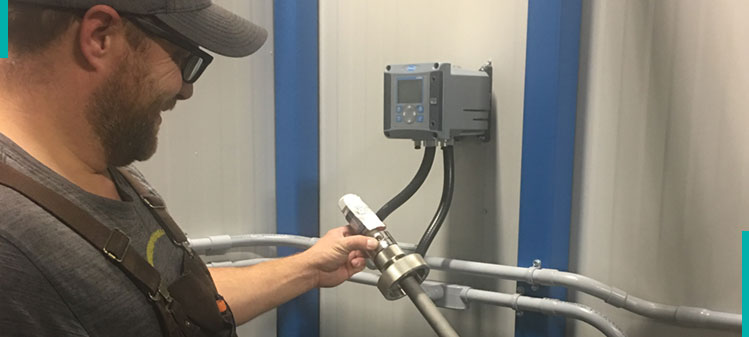Septage Receiving Best Practices: Ensuring Effective and Sustainable Waste Management
Septage management plays a vital role in maintaining public health and protecting the environment.
As an essential part of wastewater treatment systems, septage receiving facilities serve as the first step in the process of safely handling and disposing of septage waste.
In this blog post, we will explore the importance of septage receiving best practices and discuss how they contribute to effective and sustainable waste management.
Safety Measures
Safety should always be a top priority in septage receiving operations.
Proper signage, lighting, and clear traffic flow patterns are crucial for ensuring the safety of staff and drivers.

Adequate personal protective equipment (PPE) should be provided, including gloves, goggles, and respiratory protection, to protect workers from potential hazards.
Efficient and Timely Operations
To minimize the time septage trucks spend at the receiving facility, it is essential to establish efficient and streamlined processes.
Implementing an appointment system for truck arrivals and departures can help reduce waiting times and congestion.
Quick and accurate data entry systems, such as electronic manifests or barcode scanners, can enhance operational efficiency and reduce the chances of errors.
Sampling and Testing
Septage receiving facilities should have protocols in place to sample and test incoming septage for quality and compliance. This ensures that the waste received meets the necessary regulatory standards and poses no risk to the treatment plant's processes.

Regular testing for pathogens, heavy metals, and other contaminants is critical to maintaining a safe and healthy environment.
Environmental Protection
Septage contains a range of pollutants that can harm the environment if not handled properly.
Best practices include the installation of effective odor control systems, such as biofilters or activated carbon filters, to minimize unpleasant smells.
Additionally, implementing spill prevention measures, such as secondary containment systems and emergency response plans, can help prevent accidental releases into the environment.
Documentation and Record Keeping
Maintaining accurate and up-to-date records is crucial for regulatory compliance, billing, and future reference. Establishing a robust record-keeping system that includes details such as the source of septage, volume received, and testing results is essential.
This information can also be used for data analysis to improve operational efficiency and identify trends or potential issues.
Stakeholder Engagement and Education
Engaging and educating stakeholders, including septage haulers, facility operators, and the local community, is essential for successful septage management.
Regular communication channels, such as newsletters or workshops, can provide information on best practices, regulatory updates, and the importance of responsible waste management.
Encouraging dialogue and feedback can foster a collaborative approach towards sustainable septage management.
Septage receiving facilities play a crucial role in ensuring effective and sustainable waste management.
By following best practices in infrastructure design, safety measures, operational efficiency, environmental protection, and record-keeping, these facilities can contribute to public health, environmental sustainability, and regulatory compliance.
Adopting these best practices and fostering stakeholder engagement will pave the way for a cleaner and healthier future.
Other posts by Jay Morrison
Jay Morrison
Jay has been in the bulk water dispensing station controls and septage receiving station controls world for over 25 years. Together with the team at Flowpoint, we have helped over 1,000 communities across North America and the Caribbean implement our turn-key solutions, cloud-based software, and controls to help them better manage and automate their bulk water dispensing, septage receiving, modular water treatment and modular decentralized wastewater treatment processes.